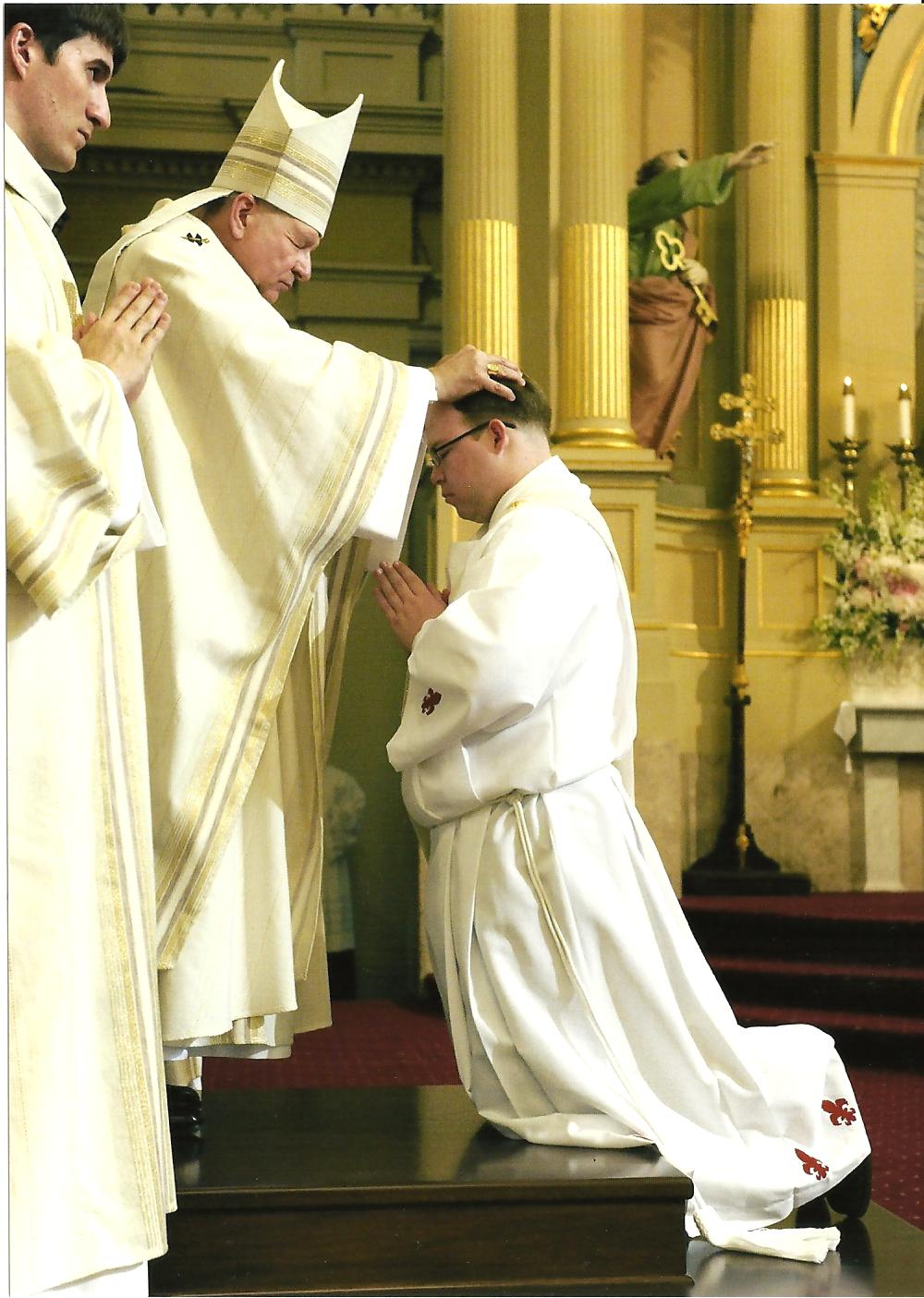|
Last week I wrote about how the laying on of hands in the sacraments represents the blessing of God the Father coming down unto us and making us His children. If we keep reading in the Old Testament, we see that the laying on of hands has another meaning. When Moses ordained Aaron and his sons as the first priests, God told them to take 1 bull and 2 rams, then to anoint Aaron and his sons with Chrism and dress them in the priestly vestments. Then, it says that Aaron and the other priests “lay their hands upon the head of the bull, and you shall kill the bull,” and “Aaron and his sons shall lay their hands upon the head of the ram, and you shall slaughter the ram,” and finally, “you shall take the other ram; and Aaron and his sons shall lay their hands upon the head of the ram, and you shall kill the ram” (Ex 29). The book of Leviticus is the instruction book for the Old Testament priests on how to make the sacrifices in the Temple. Over and over the book of Leviticus says things like this, “He shall bring the bull to the door of the tent of meeting before the Lord, and lay his hand on the head of the bull, and kill the bull before the Lord” (Lv 4:4). If you’re a bull or a ram or a lamb in the Temple and you see a guy in special priestly vestments coming towards you with his hands stretched out, you better run because you’re being set apart as a sacrifice for the Lord.
Likewise, in the ordination of a Catholic priest, the bishop lays his hands on the head of the young man, thus setting Him apart for the Lord and marking Him as a sacrificial offering for God. The priest is called to die to himself so He can live for Christ. It’s not just priests who receive the laying on of hands. In the Sacrament of Confirmation each candidate, or all together if there are many of them, receives the laying on of hands, signifying that they too are set apart for God. In the sacraments we are conformed to Jesus Christ. We become children of God because we are united with the Son of God. We are, as it were, sons in the Son. Jesus Christ became one of us in the incarnation in order to make us like Him and show us what it means to be children of God. As Jesus said, “If any man would come after me, let him deny himself and take up his cross and follow me” (Mt 16:24). Being conformed to Christ means to take up the Cross and be willing to suffer for the good of others, as Jesus Christ did for us. How do we take up the Cross in our daily lives? First, we know that everyone experiences suffering at some points in their lives. We can suffer patiently and offer it up. There’s no special trick to this. Simply tell Jesus that you are giving Him you pain and suffering for whatever intention you have. You can offer it for the souls in purgatory, for your family or children, for Catholic missionaries, or any other intention that you may have. This won’t make your suffering go away, but it will unite it to the Cross of Christ and give it meaning. Some suffering, like an illness, comes to us against our will and some we choose to undergo. The highest form of suffering is the suffering that we willingly endure for the sake of a loved one, as a soldier or first responder puts their lives on the line to save some else or as a martyr endures suffering and death because of their faith in God. Martyrdom is to die the death of Christ and so to be conformed to Christ not only in life but also in death, and so martyrs go straight to heaven, because they are already united to Christ. Let us ask Jesus to give us the strength of the martyrs in all the suffering in our lives, that we may be conformed to Christ in life, in death, and for eternity in heaven. Comments are closed.
|
AuthorFr. Bryan was pastor of Our Lady of Lourdes from July 3, 2017 to June 2022. Categories
All
Archives
June 2022
|

 RSS Feed
RSS Feed